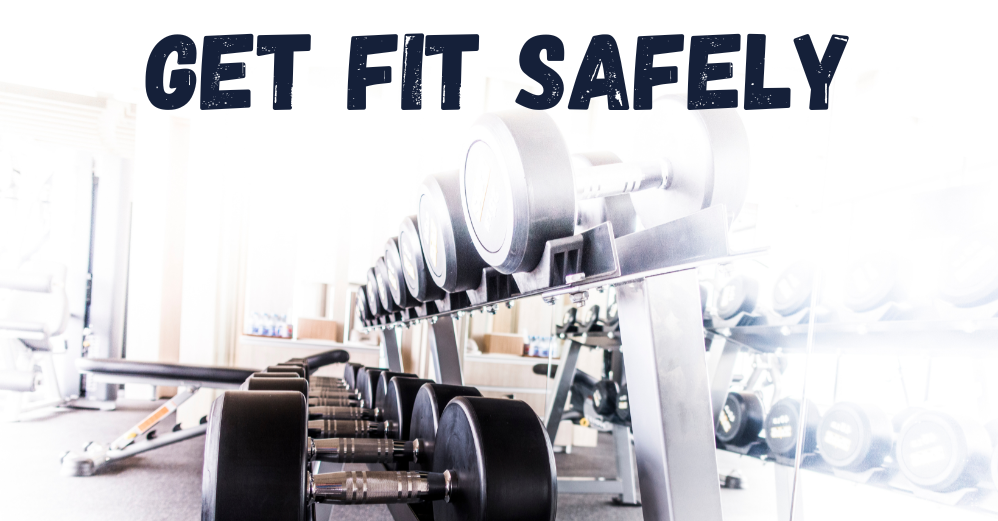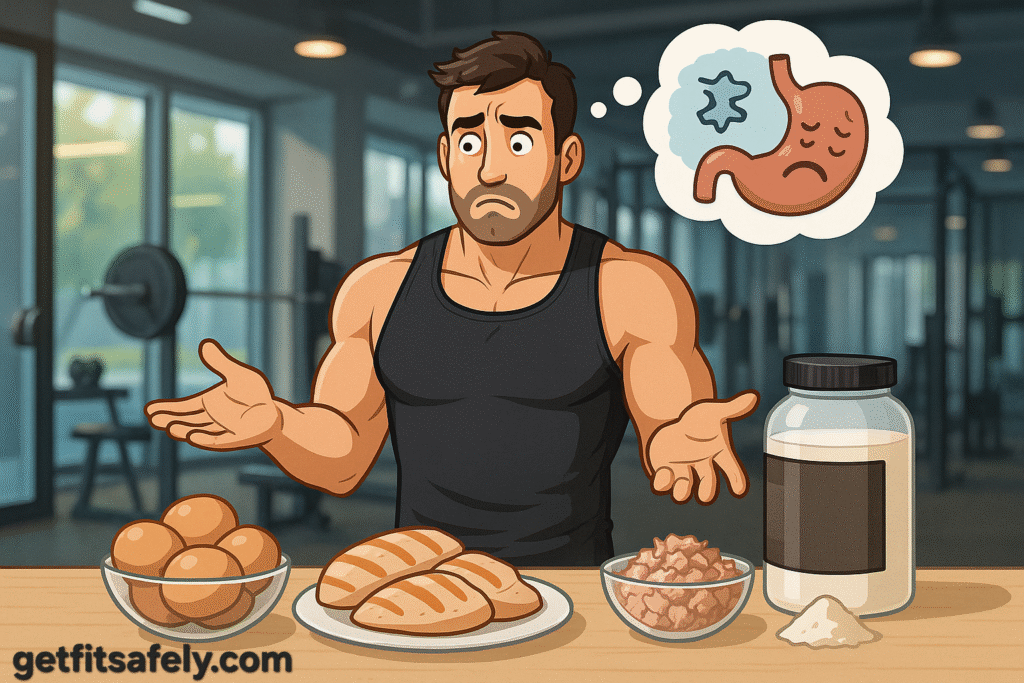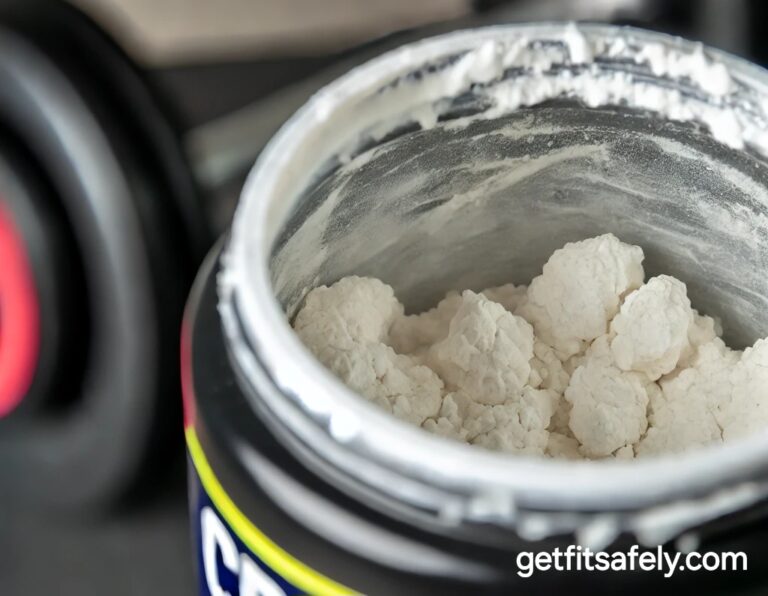Yes, I’m about to say something uncomfortable
It might not be popular among bro-science fans and chocolate protein shake lovers, but…
You might be eating too much protein.
And not just too much.
Too much, at the wrong time.
In the wrong way.
Without your body really being able to use it the way it should.
And while you think you’re in the middle of the “ultimate muscle growth phase,” your body might actually be confused, tired… and kind of clogged.
The spiral of “protein at all costs”
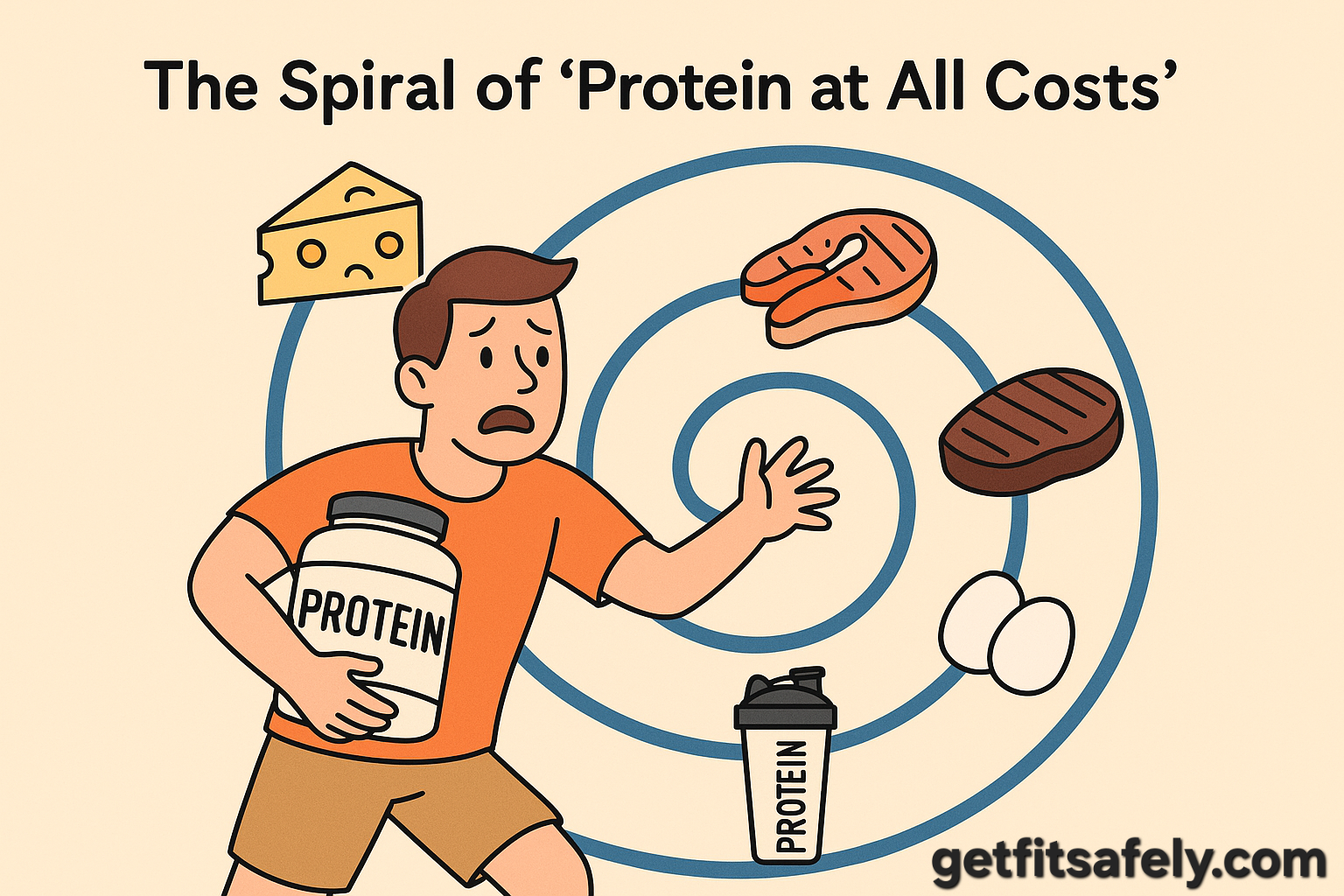
It always starts the same way.
You read on a forum that you need at least 2 grams of protein per kilogram of body weight.
Then someone at your gym raises the bar: “I take 3 grams per kilo, bro. That’s how you really grow.”
And off you go.
- Egg whites for breakfast
- Chicken breast mid-morning
- Tuna for lunch
- Bresaola post-workout
- Casein before bed
At some point, your stomach starts letting you know that maybe you’re overdoing it.
You feel bloated.
You’ve got more air than muscle.
Your energy crashes like a pancake without syrup.
But you push through.
Because “it’s part of the process.”
Except… maybe the process is broken.
More protein doesn’t mean more muscle
Here’s the key point.
The body builds muscle through a mechanism called muscle protein synthesis.
An extraordinary process—but with very specific rules.
You need a stimulus (training), and you need raw materials (protein, especially essential amino acids).
But only up to a point.
Beyond that threshold, the excess gets:
- Converted into glucose
- Stored as fat
- Or simply excreted
So all that $60-a-month whey protein?
You could literally be using it as plant fertilizer.
When too much protein messes with your hormones
Now we’re entering the gray area.
A high-protein diet at the expense of fats and carbs can alter some key hormones. (High-protein diets and testosterone)
Like testosterone.
That amazing hormone that builds muscle, boosts libido, and makes you feel alive.
Preliminary studies (not gospel, but still worth considering) have found that a protein-heavy, low-fat diet can lower testosterone levels over time.
Not in a week.
But over months?
You might end up more shredded, yes—but also more tired, irritable, and… sluggish.
In the gym and outside of it.
Digestion is energy. And also stress.
The body uses energy to digest food.
But when you overdo protein—especially animal protein—that process slows down.
You feel full, heavy, less “snappy.”
And that slowdown can affect muscle recovery, nutrient absorption, and sleep quality.
A slow, stressed digestive system can also:
- Increase gut inflammation
- Worsen intestinal permeability
- Disrupt microbiota balance
So no, it’s not enough to just “shovel in protein.”
Your gut needs to actually be able to use it.
Timing and distribution matter more than total daily intake
Here’s a detail often overlooked.
It’s not just how much protein you eat, but when and how you distribute it throughout the day.
A study on strength athletes showed that evenly distributing 25–30g of protein every 3–4 hours stimulates muscle synthesis better than dumping it all into two massive meals.
The body works in “stimulation peaks,” it can’t stay in build mode 24/7.
You need to create those peaks with:
- Training
- The right amount of protein
- Digestive breaks
Too much protein all at once?
It’s like pouring 10 liters of water into a 1-liter pot.
The rest… spills out.
The (underrated) role of carbs and fats
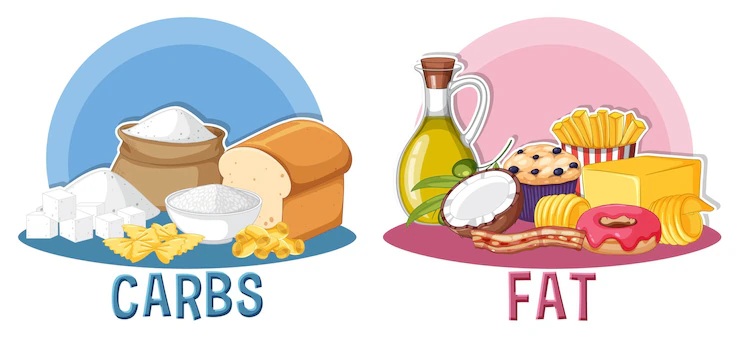
In the rush to “maximize protein,” many cut carbs and fats way too much.
Big mistake.
Carbs:
- Lower cortisol
- Refill muscle glycogen
- Indirectly stimulate insulin (which helps amino acid uptake)
Fats:
- Are essential for producing sex hormones
- Improve brain health
- Help absorb fat-soluble vitamins (A, D, E, K)
Cutting them to raise protein?
It’s like adding turbo and nitro to a car… with no gas in the tank.
So… how much protein do you REALLY need?
Most recent studies agree on an effective range of 1.6 to 2.2 grams of protein per kilogram of body weight for people who train regularly.
But beware:
If you have a high body fat percentage, it’s better to calculate your needs based on lean mass.
A 90 kg man with 25% body fat doesn’t need 200 grams of protein.
130–150 well-distributed grams are plenty.
And that alone could make a huge difference in:
- Digestion
- Energy
- Recovery
- Sleep quality
When hunger isn’t hunger: the trap of “emotional protein”
Sometimes we don’t eat more protein because we need it.
We do it because it makes us feel safe.
“If I eat more protein, I’ll grow more.”
It’s kind of like a security blanket for gym addicts.
Finished your workout?
Boom, shake.
Hungry after dinner?
Greek yogurt.
Wake up at night?
Two boiled eggs.
But often, this isn’t real hunger.
It’s growth anxiety.
It’s the fear of losing lean mass while you sleep.
And this “anabolic anxiety” can lead you to eat too much, poorly, and under chronic stress.
Watch your liver (and kidneys): you’re not a biochemistry lab
Yes, it’s true that a healthy person can tolerate fairly high amounts of protein without kidney or liver damage.
But “can tolerate” doesn’t mean it’s ideal.
An excessive protein load over months forces the liver to work overtime converting nitrogen into urea.
The kidneys then have to eliminate that extra urea.
If you have even a genetic predisposition or less-than-perfect kidney function… you could be stressing the system.
I’m not saying you’re about to collapse mid-barbell curl.
But if you can get the same results with less stress… why not?
Quality beats quantity (and discount chicken)
Classic mistake?
Focusing on quantity while sacrificing quality.
Better to get 120 grams of protein from complete, digestible, varied sources…
Than 180 grams from:
- Boiled factory-farmed chicken
- Cheap canned tuna
- Bars full of sweeteners and weird gums
Bioavailability matters.
And your gut knows it.
Want real muscle?
Feed it real protein.
With micronutrients, a complete amino acid profile, and zero chemical stress.
When lowering protein… improves performance
Sounds like a paradox, I know.
But it happens.
Ever tried lowering your protein slightly (say from 180g to 140g) and raising carbs a bit?
Many athletes report:
- More stable energy
- Better pumps
- More productive sessions
- Deeper sleep
Not because protein is “the problem”…
But because a balanced system responds better to stimuli.
And muscles grow not just from what you eat.
But from how your body uses what you eat.
RELATED:》》》Why do I get sleepy after my high-protein meals and is it hurting my muscle gains?
Conclusion
Protein is essential.
But it’s not everything.
You need balance.
You need quality.
You need a body that can recover, digest, absorb, and grow.
You’re not a walking protein shake.
If you’ve already maxed out on protein and your progress is stuck…
Try recalibrating.
Lower the dose a bit.
Bring carbs back into the game.
Teach your body to work better, not just to receive more.
Because real gains don’t come when you push harder.
They come when everything works better.
And trust me: muscles built in balance… last longer.

